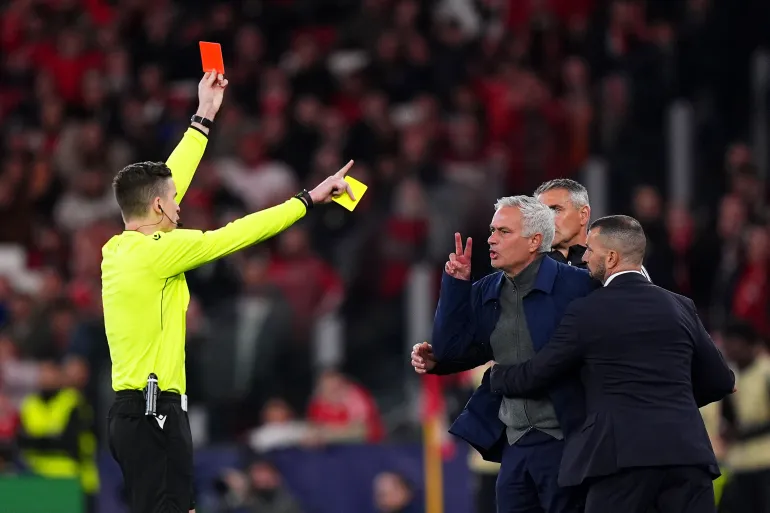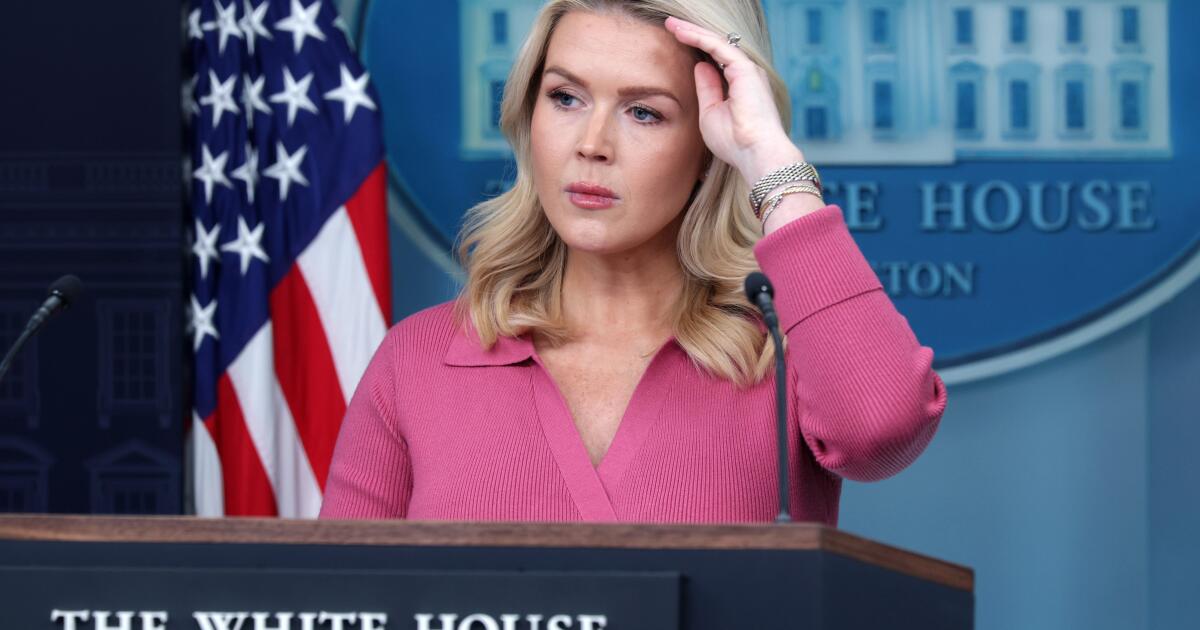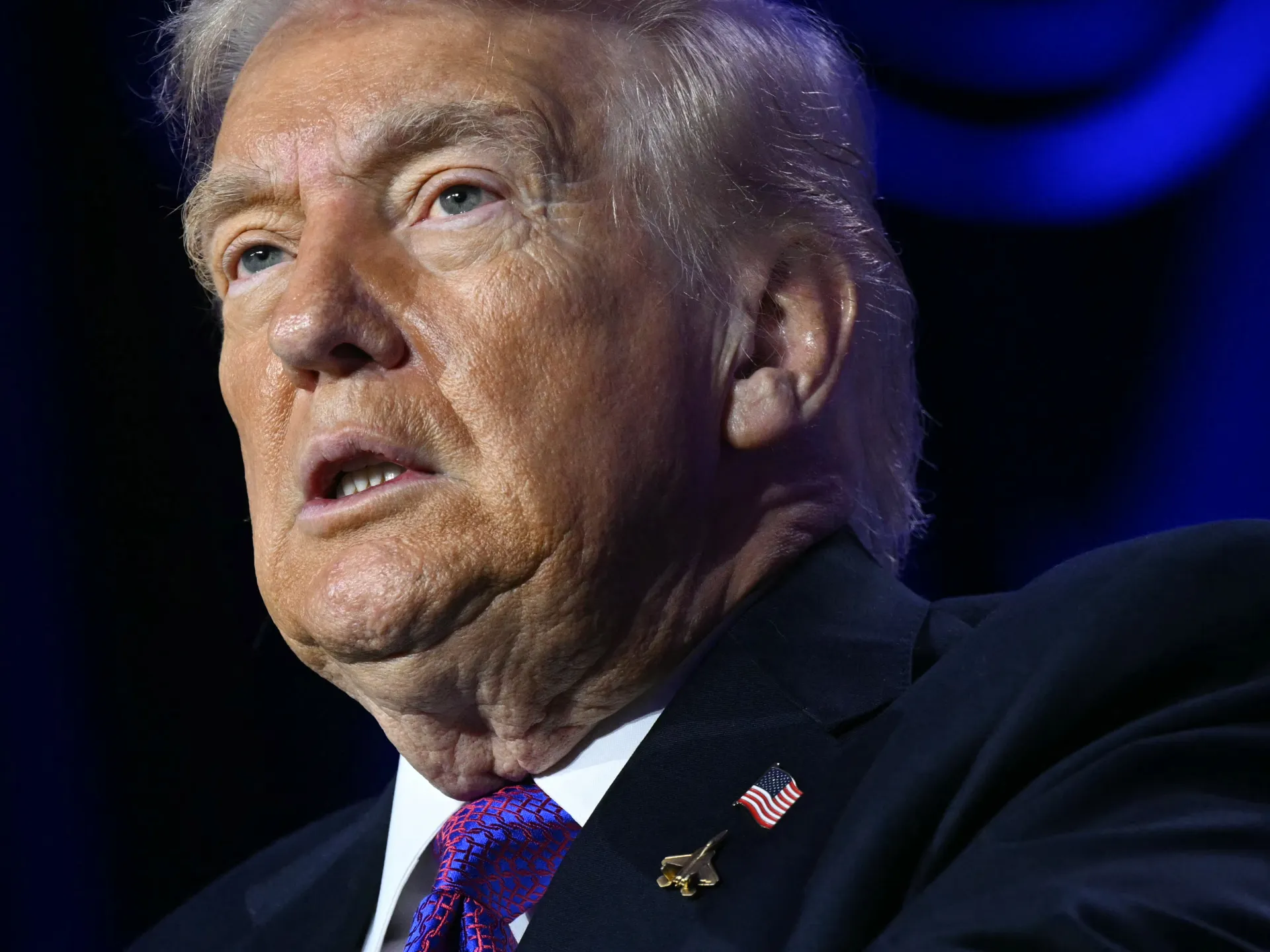Vinicius earns Real Madrid 1-0 win at Benfica in match marred by racism row | Football News
Vinicius Jr scored a sublime second-half winner as Real Madrid beat Benfica 1-0 in their Champions League playoff first leg, a night overshadowed by the Brazilian accusing Benfica’s Gianluca Prestianni of directing a racist slur at him.
The alleged incident occurred moments after Vinicius had curled Real ahead, five minutes into the second half at the Estadio da Luz on Tuesday, before referee Francois Letexier halted the match for 11 minutes under FIFA’s anti-racism protocol.
Recommended Stories
list of 4 itemsend of list
Television pictures showed the Argentinian winger covering his mouth with his shirt before making a comment that Vinicius and nearby teammates interpreted as a racial slur against the 25-year-old, who has repeatedly suffered racism in Spain during matches.
“It is unbelievable that, with dozens of cameras in the stadium, that none could have caught [Prestianni’s] racial slur, but if you cover your mouth to say something, that says a lot,” Real captain Federico Valverde told Movistar Plus.
“According to my teammates who were close, they heard something very ugly. Many people have been fighting against racism in football; Vinicius is one of them. I’m proud of him and his great game.”
The Associated Press news agency reported that television cameras picked up Vinicius Junior telling the referee that Prestianni had called him a “monkey”.
Benfica began the game on the front foot, but the visitors gradually assumed control while the hosts appeared content to counterattack, with goalkeeper Thibaut Courtois producing a stunning one-handed save to keep out a 25th-minute strike from Fredrik Aursnes.
Real finished the first half strongly, and only goalkeeper Anatoliy Trubin’s brilliance kept the score goalless at the break as he produced stunning saves to deny Kylian Mbappe and Arda Guler.
The breakthrough came five minutes after the restart. Mbappe burst forward and fed Vinicius on the left. The Brazilian cut diagonally towards the box, shifted inside and unleashed an unstoppable curling shot into the far top corner.
Vinicius celebrated by dancing with the corner flag and was booked by Letexier for excessive celebration.
As the forward argued with the referee, he became involved in a heated exchange with Prestianni, with Vinicius and several teammates suddenly running towards the referee.
Letexier crossed his arms in front of his face to activate FIFA’s protocol and stopped the match. Real’s players threatened to leave the pitch as tensions flared, before play eventually resumed 11 minutes later.
The atmosphere turned hostile, with Vinicius loudly booed whenever he touched the ball, and the broadcast camera appeared to show an outraged Mbappe calling Prestianni “a bloody racist” to his face several times after the game resumed.
Tempers flared again in the 85th minute, when Vinicius fouled Richard Rios. Benfica manager Jose Mourinho stormed towards the fourth official, demanding a second booking for the Brazilian, but was himself cautioned for his protests.
An incensed Mourinho continued remonstrating, and was promptly shown a second yellow card.

Benfica pushed late on, but managed only three shots on target as Real secured a slender advantage to take back to Madrid for the return leg.
Real Madrid coach Alvaro Arbeloa decried the alleged abuse against Vinicius Junior.
“I think everyone can see what happened with Prestianni,” he said.
Arbeloa added, “We have to fight against this type of attitude”, and, “If we don’t respect each other, then it is a problem”.
Madrid right-back Trent Alexander-Arnold told Amazon Prime that what allegedly happened during the match was a “disgrace to football” and overshadowed the performance and an amazing goal.
“Vini has been subject to this a few times throughout his career,” he said. “To ruin a night like this for our team is a disgrace. There is no place for it in football or society. It is disgusting.”
Mourinho criticised Vinicius Junior’s celebration and defended the club – if not Prestianni – against allegations of racism.
“Words were exchanged. I want to be independent. I don’t want to say I believe in Prestianni or believe in Vinicius,” he said.
“I told [Vinicius], ‘When you score a goal like that, you just celebrate in a respectful way’. When he was arguing about racism, I told him the biggest person [Eusebio] in the history of this club was Black. This club, the last thing that it is, is racist.”
Galatasaray thrash Juve 5-2
Elsewhere on Tuesday, Dutch midfielder Noa Lang scored a brace as Galatasaray thumped Juventus 5-2 in a pulsating contest in Istanbul in the first leg of a Champions League playoff.
In a nerve-shredding atmosphere, Luciano Spalletti’s Juventus actually led 2-1 at half-time after Teun Koopmeiners replied to Brazilian midfielder Gabriel Sara’s opener with a brace of his own.
But Colombian full-back Juan Cabal was dismissed for two bookings in a calamitous second half for the Italian side, as Lang’s brace and goals from Davinson Sanchez and Sacha Boey sunk Juventus.
Meanwhile, Champions League holders Paris Saint Germain overcame a horror start and a two-goal deficit to beat 10-man Monaco 3-2 away in the first leg of their knockout round playoff tie.
Desire Doue came off the bench to engineer an impressive turnaround for PSG, who conceded a goal in the opening minute and were 2-0 down after 18 minutes as Folarin Balogun grabbed a double for the hosts.
The 20-year-old Doue replaced Ballon d’Or winner Ousmane Dembele, who went off injured after 27 minutes, and proved decisive for the visitors as he struck two superb goals, as well as setting one up for Achraf Hakimi.
In Germany, striker Serhou Guirassy scored one goal and created another as hosts Borussia Dortmund claimed a 2-0 victory over Italian visitors Atalanta in the first leg of their Champions League playoff tie on Tuesday.


